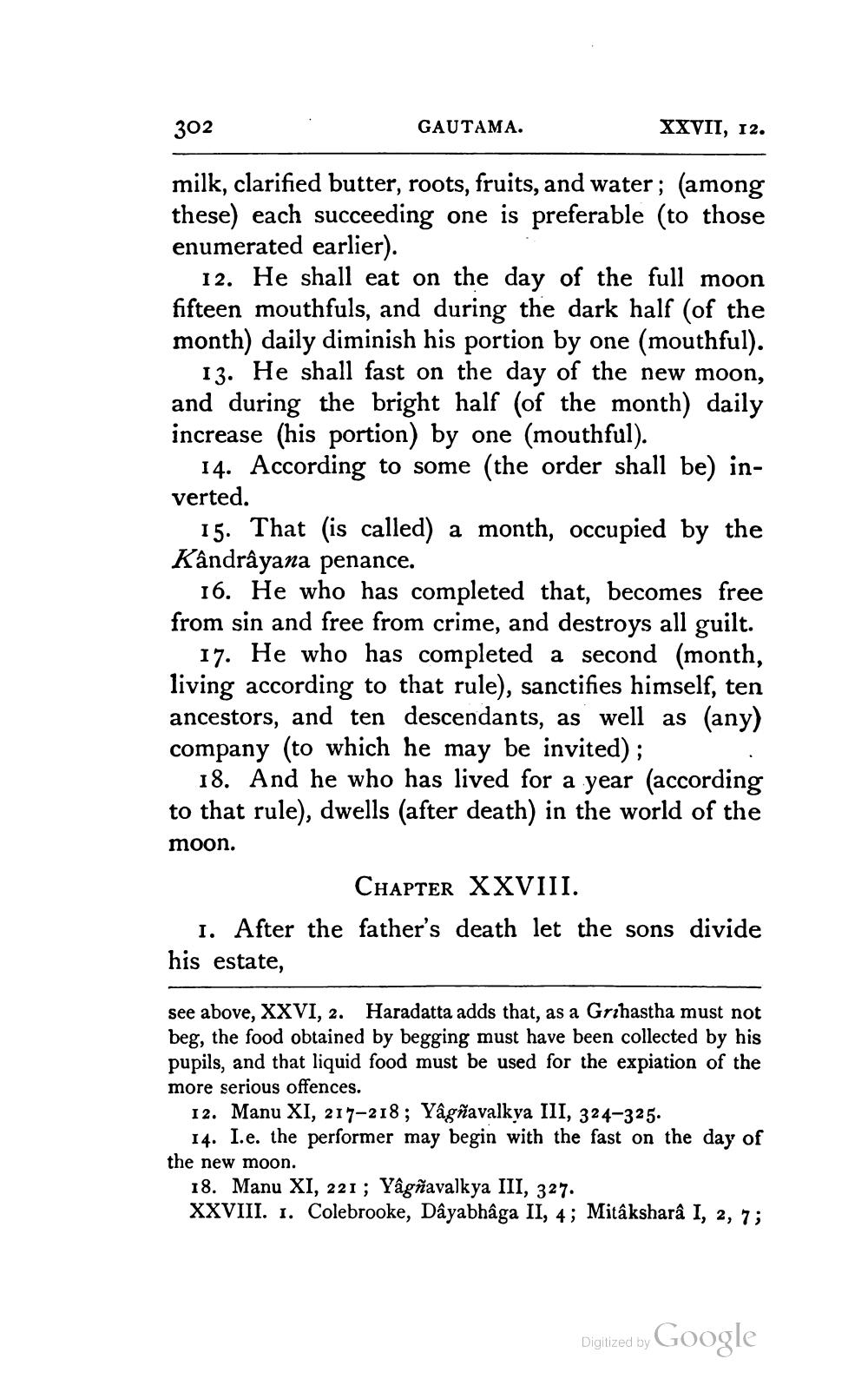________________
202 302
GAUTAMA.
XXVII, 12.
milk, clarified butter, roots, fruits, and water; (among these) each succeeding one is preferable (to those enumerated earlier).
12. He shall eat on the day of the full moon fifteen mouthfuls, and during the dark half (of the month) daily diminish his portion by one (mouthful).
13. He shall fast on the day of the new moon, and during the bright half (of the month) daily increase (his portion) by one (mouthful).
14. According to some (the order shall be) inverted.
15. That (is called) a month, occupied by the Kândrayana penance.
16. He who has completed that, becomes free from sin and free from crime, and destroys all guilt.
17. He who has completed a second (month, living according to that rule), sanctifies himself, ten ancestors, and ten descendants, as well as (any) company (to which he may be invited);
18. And he who has lived for a year (according to that rule), dwells (after death) in the world of the moon.
CHAPTER XXVIII. 1. After the father's death let the sons divide his estate,
see above, XXVI, 2. Haradatta adds that, as a Grihastha must not beg, the food obtained by begging must have been collected by his pupils, and that liquid food must be used for the expiation of the more serious offences.
12. Manu XI, 217–218; Yâgñavalkya III, 324–325.
14. I.e. the performer may begin with the fast on the day of the new moon.
18. Manu XI, 221; Yâgñavalkya III, 327 XXVIII. 1. Colebrooke, Dâyabhaga II, 4; Mitâksharâ I, 2, 7;
Digized by Google




